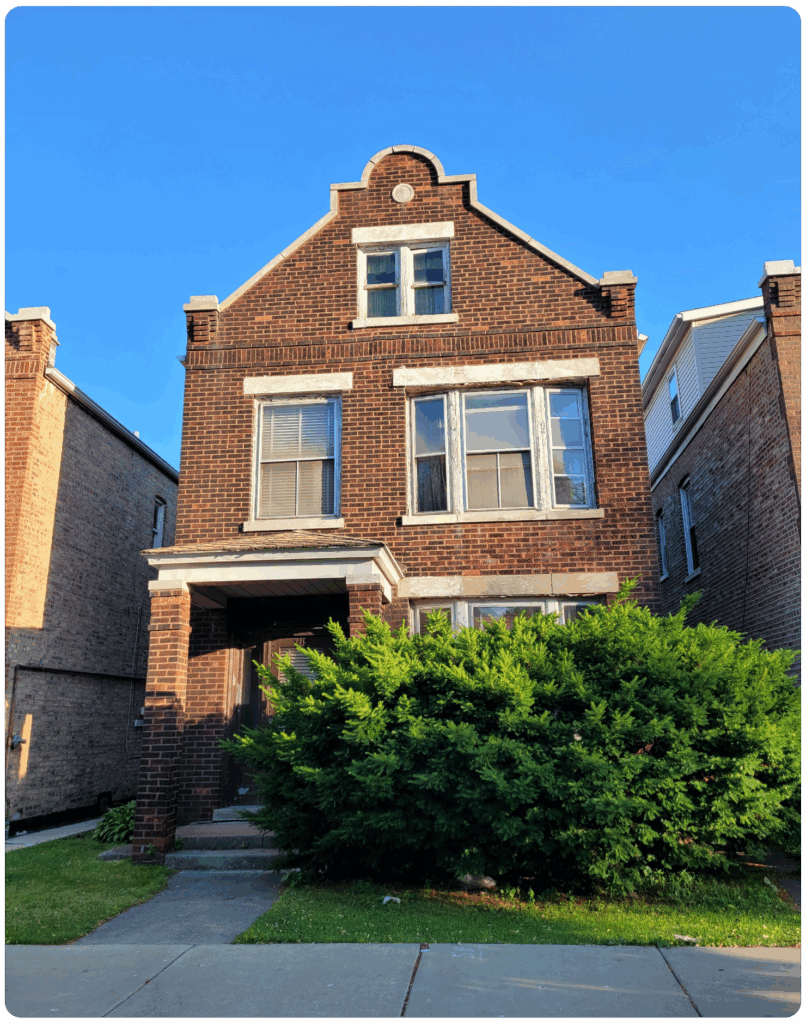
Understanding Home Equity: Key Concepts for Homeowners
Understanding home equity is critical for Illinois residents considering selling their property. Home equity is the difference between the current market value of your home and any outstanding mortgages or liens on it.
Building substantial equity can be considerably beneficial when selling, often resulting in higher sales profit. Home equity is influenced by various factors, including changes in the local real estate market, property appreciation, and steady mortgage payments that reduce loan balances over time.
In Illinois, where property markets vary greatly from Chicago to rural locations, staying current on regional trends is critical for maximizing home equity. Homeowners can also consider potential additions or renovations that could boost property value and increase equity.
Understanding how interest rates and economic trends affect property prices can help owners make more informed decisions about when to sell. Maximizing home equity necessitates a comprehensive strategy that includes regular property assessments and financial planning tailored to individual conditions in the Illinois housing market.
If navigating home equity sounds overwhelming, A Team Real Estate Solutions is here to help — we buy houses for cash in Chicago and throughout Illinois, letting homeowners skip the stress and sell fast without worrying about market value, mortgage balances, or any equity-related complications.
How to Calculate the Equity in Your Home Before Selling

Calculating the equity in your property before selling is an essential step for Illinois homeowners who want to maximize profits. To calculate your home equity, remove your outstanding mortgage balance from the current market value of your house.
Begin by obtaining an accurate appraisal or comparative market analysis to determine your home’s current value based on recent sales of comparable homes in Illinois. This market assessment provides a realistic estimate of what purchasers are willing to pay.
Next, analyze your most recent mortgage statement to determine how much you still owe on your loan. The difference between this debt balance and the evaluated value reflects your home equity, which can be used to steer pricing tactics and negotiate with prospective purchasers.
Understanding these critical equity insights gives sellers the knowledge they need to make informed decisions and maximize their profit when selling their Illinois home.
Strategies to Maximize Home Equity Prior to Sale
When selling a house in Illinois, maximizing equity is critical to ensuring the highest potential return on investment. Begin by improving curb appeal, as first impressions count; consider fresh landscaping and keeping the exterior paint.
Inside, prioritize smart upgrades to increase value, such as replacing kitchens and bathrooms with modern fixtures or energy-efficient equipment. It is critical to tidy and depersonalize places so that prospective buyers may imagine themselves living there.
A pre-sale inspection can assist in detecting any necessary repairs before listing, minimizing surprises during negotiations. Pricing your home competitively based on local market trends and comparable properties will help you attract serious buyers immediately.
Staging your property effectively reveals its full potential and appeals to a broader audience, enhancing perceived value. Collaborate with an expert familiar with the Illinois market to help you develop pricing tactics and marketing plans for your home type and location.
Factors Affecting Real Estate Equity in Illinois
Understanding the factors that influence real estate equity is critical for making a profit when selling a home in Illinois. One of the most important factors is the local housing market conditions, including supply and demand dynamics that dramatically affect property values.
For example, high demand and limited inventory in booming cities like Chicago frequently boost home equity. Economic considerations such as interest rates and employment levels are crucial; low interest rates can increase buyer affordability, thus driving up home values and equity.
Property-specific qualities are also important; repairs or renovations that improve curb appeal or update interiors can boost a home’s market value. Neighborhood patterns further impact equity, with potential purchasers prioritizing school quality, crime rates, and public amenities.
Understanding these many elements allows sellers to make more informed judgments about pricing strategy and timing when entering the Illinois real estate market.
The Impact of Market Conditions on Home Equity Value

When selling a property in Illinois, it is critical to understand how market circumstances affect home equity value. Market conditions include supply and demand dynamics, interest rates, and regional economic health, which substantially impact property values.
Home equity rises in a seller’s market, which is defined by high demand and limited inventory. Purchasers battle for available properties, frequently driving up prices. In a buyer’s market with a glut of listings and fewer prospective buyers, sellers may struggle to retain or increase the equity value of their home.
Interest rates also play an essential role; lower rates can raise purchasing power and stimulate demand, increasing home equity. Economic variables such as job rates and local business growth can also impact home markets in Illinois cities like Chicago and Springfield by influencing consumer confidence and purchasing power.
Understanding these aspects enables homeowners to deliberately time their sale to optimize equity returns in response to market conditions.
Timing the Sale: When Is the Best Time to Sell a House in Illinois?
Timing the sale of your Illinois home can significantly impact the final selling price and transaction speed. Understanding local real estate market trends is critical for homeowners hoping to sell their house quickly.
In Illinois, the ideal time to sell a home is often in the late spring and early summer months, notably May and June, when buyer demand is at its height. Homes sell faster and at higher prices during these months due to increased competition among purchasers looking to relocate before the start of the new school year.
Furthermore, the pleasant weather conditions during this time make it more appealing for potential buyers to visit communities and attend open houses. However, evaluating unique geographical variances within Illinois is critical, as urban locations like Chicago may have distinct market dynamics from rural areas or smaller towns.
Monitoring seasonal swings in housing inventory and mortgage interest rates can also provide helpful information for optimizing your home’s sale timing, maximizing returns while reducing time on the market.
Analyzing Comparable Sales to Set the Right Listing Price
When selling your house in Illinois, studying similar sales is critical to determining the appropriate listing price. Examining recently sold properties similar to yours regarding location, size, condition, and features can provide significant insights into the current real estate market dynamics.
This approach helps identify local buyer demand trends and price changes. Accessing data on comparable properties sold within the last six months gives you a reasonable standard for pricing your property.
Critical elements such as square footage, number of bedrooms and bathrooms, lot size, and special features should be carefully considered to ensure accuracy. Additionally, paying attention to how quickly these comparable homes sold will help you develop your pricing approach.
This detailed study enables sellers to align their listing price with market expectations while increasing their chances of attracting potential purchasers.
Preparing Your Illinois Property for a Profitable Sale
Improving curb appeal and making required repairs are critical when preparing your Illinois property for a profitable sale. To attract potential buyers, clean the exterior with fresh paint, well-maintained landscaping, and a welcoming doorway.
Inside, declutter to create a more spacious feeling and use neutral color schemes to appeal to a broader audience. Address any maintenance issues, such as leaking faucets or defective wiring, as prospective buyers in Illinois will be aware of these during inspections.
Investing in energy-efficient modifications can increase your home’s market value, attracting environmentally aware buyers looking for sustainable living options. Staging your property with modern furnishings can help show off its full potential, allowing buyers to imagine themselves living in it.
By systematically improving essential elements of your property, you may increase its equity and ensure a successful sale in the competitive Illinois real estate market.
The Impact of Renovations on Home Equity and Sale Price
Renovations can substantially impact home equity and the final sale price when selling a property in Illinois. Strategic upgrades, such as renovating kitchens and bathrooms or improving curb appeal, frequently result in a good return on investment by raising the property’s market value.
Illinois homeowners should prioritize modifications that align with current buyer preferences to enhance their house’s appeal and equity. Energy-efficient changes, such as installing new windows or modern HVAC systems, increase value and attract environmentally concerned buyers looking for long-term savings.
Furthermore, minor cosmetic changes such as fresh paint or modern fixtures can create a more attractive environment that appeals to potential purchasers, increasing the sale price. Understanding local market trends is critical for homeowners looking to invest intelligently in upgrades that increase equity and buyer interest in their Illinois homes.
Legal Considerations When Selling a House in Illinois

Paying attention to the legal issues in selling one’s property in Illinois is essential. As a seller, you must comply with applicable laws in real estate disclosures, which obliges the seller to give prospective purchasers a Residential Real Property Disclosure Report.
This report outlines material defects discovered in the house that could impact its valuation and safety. Sellers should also note local zoning regulations and homeowners association rules that may restrict or regulate certain aspects of the sale.
In most cases, an attorney is retained alongside real estate professionals to help navigate through complex negotiations and drafts. Ensuring all documentation, such as title records, necessary permits, and inspections, is done correctly and entirely is critical.
Having these legal requirements helps avert disputes and ensures that both parties can attain ease during the closing phase of transactions for a house in Illinois.
Tax Implications of Selling Your Home in Illinois
For innovative financial management, it is essential for any owner who intends to sell their property in an ill state to understand what taxes follow. Moreover, capital gain taxes will take effect if the property’s value increases after it is sold or bought.
Nonetheless, homeowners can often benefit from the federal exclusion, which allows taxpayers to deduct up to $250,000 of capital gains from taxable income if the asset was a primary residence for at least two out of five years. This amount is doubled to $500,000 for married couples filing jointly. It is also important to note that local and state transfer taxes, which might be levied during the selling process, need careful consideration.
Sometimes, home sellers may qualify for deductions on home improvements or selling costs that can lower their tax burden. Knowing these tax issues and working with an experienced tax advisor will ensure compliance with federal and state obligations while maximizing financial returns upon selling the residence.
Understanding Closing Costs and Their Effect on Net Proceeds
As a key component, understanding closing costs is vital in determining net proceeds when selling a house in Illinois. These costs comprise different types of fees resulting from completing a Property transaction.
These consist of real estate professional commissions alongside legal expenses, transfer taxes, title insurance expenses, and any liens or property taxes due. In Illinois, the closing costs that the seller bears significantly affect the net proceeds from the sale. Commissions for real estate professionals tend to be some of the most expensive fees, ranging from 5-6% of a home’s selling price. Additionally, Illinois has transfer taxes calculated based on the property’s sale price. This will undoubtedly reduce your net earnings after all is said and done.
Title insurance guarantees a clear title and offers protection against claims that may arise on a property. However, title insurance does increase closing costs. By knowing these expenses, sellers can accurately gauge how efficiently they can price their homes and predict their finances post-sale.
Tips for Choosing the Best Real Estate Professional in Illinois
When selling your home in Illinois, it is essential to understand that the choice of an expert will dictate whether the sale becomes successful or not. Begin searching for experts who have worked in the Illinois market for considerable periods, as they will have local knowledge and ideas that would positively impact your deal.
Look for qualified professionals who have sold other properties within your neighborhood and price range. Through testimonials and reviews left by previous clients, you can determine their level of satisfaction and communication skills.
Consider consulting with several experts to assess their current market knowledge related to marketing strategies, negotiations, and trends in real estate sales within Illinois. A good real estate professional should be intuitive enough to manage documents accurately without delays and respond to questions promptly.
Give preference to experts familiar with digital marketing tools and platforms; they are essential for reaching potential buyers today. An expert with good neighborhood contacts can also offer necessary networking leverage, which may speed up your house sale in Illinois.
Marketing Strategies for a Successful Home Sale in Illinois
While selling a home in Illinois, employing good and effective marketing techniques is imperative for a successful sale. Remember to improve your home’s curb appeal, as the first impression is critical in attracting potential buyers.
Capture the unique features of your property using professional photographs. As most buyers start there, elevate your property’s visibility through well-known online platforms such as Zillow, Redfin, and Realtor.com.
To reach a wider audience, use social media like Facebook and Instagram that allow you to share attractive photos and virtual tours of your home. Engage more interested buyers by conducting open houses and private showings where they can view the property personally.
Navigating the Illinois market as a local real estate professional can be beneficial and impactful regarding pricing decisions. Consider targeting advertising campaigns toward demographics most likely interested in homes within your neighborhood or desired price range.
Applying these combined tactics will increase interest in the home listing, thus leading to a competitive bidding war that allows you to fetch a reasonable amount for your house.
Negotiation Tactics for Sellers: Getting the Best Offer
Understanding these fundamental negotiation tactics is essential to getting the best selling offer. Sellers must also know how much their property is valued within a specific time frame and its overall market value to offer the best deal.
This enables them to set balanced yet attractive prices that encourage serious bidders and provide ample margin for negotiations. Instead of simply stating their asking price or expected amount without reasoning, sellers should utilize each home’s unique qualities to justify negotiations to counter lower offers.
Through private viewings and open houses, sellers can explain all crucial details directly instead of leaving them in listing descriptions. A backup plan always helps, such as offering to pay for some costs rather than just slashing the base price.
An adept real estate professional familiar with the intricacies of the Illinois market provides invaluable guidance through every step of the negotiation and insight for sellers, ensuring that they get maximum return on investment.
Understanding Buyer Financing Options and Their Impact on Sales

Understanding buyer financing options is critical for successful transactions when selling a home in Illinois. Buyers usually obtain finance through a mortgage, and how a buyer’s mortgage is structured can significantly impact the sales process.
Conventional loans are popular in Illinois due to their competitive pricing and easy approval, which offers appeal to many buyers. First-time buyers do like FHA loans because of their modest down payment requirements.
Moreover, VA loans are an appealing alternative for veterans and active military personnel, with no down payment being one of the perks. As each loan type comes with specific qualifying criteria, there are always unique appraisal-related stipulations, which may include additional seller appraisal contingency clauses, adding to the sale timetable.
Thanks to understanding these distinctions, sellers can mitigate these challenges by anticipating them. Understanding these distinctions improves negotiations and closing process timelines, significantly streamlining deals from all angles. Understanding various financing options allows sellers to talk directly to possible buyers, improving decision-making processes that enhance their homes’ value-adding appeal within the state’s highly competitive real estate environment.
What Is the Minimum Equity to Sell a House?
When considering selling your property in Illinois, it is essential to note the term minimal equity. Equity refers to the difference between your home’s current market value and the remaining balance on your mortgage.
Meeting the basic requirements to sell a house requires adequate equity, not only to settle all charges such as real estate commissions, closing fees, and any remaining debt on a mortgage. Like other states, Illinois does not have a specific “minimum” equity threshold for selling a house, but achieving over 10-20% equity increases options while lowering the risk of bringing cash to closing.
Looking for an appropriate balance means that all financial burdens can be settled and may even result in attaining sales profits. When coupled with these critical equity insights, this can aid homeowners in better navigating the Illinois real estate market and accomplishing their selling goals.
How to Avoid Capital Gains Tax When Selling a House in Illinois?
Knowing how to avoid capital gains tax while selling a house in Illinois may significantly influence your finances. One key piece of equity information would be the principal residence exclusion application, which permits homeowners to exempt up to $250,000 in capital gains for single filers and $500,000 for joint filers from their taxable income if they lived in the house for two out of five years.
Proper timing is also very important; scheduling the sale during peak market times could enhance your equity and lower your tax burden at the same time. Another viable option would be reinvesting in a similar property through a 1031 exchange, which defers payment of taxes on the gain by rolling over proceeds into new property investments.
Equity returns need an expert’s hands because precise calculations make tracking home additions and upgrades vital. Those expenses raise your cost basis, which means profits will be taxed at a lower rate. An issue like this is best handled by specialized tax advisers or real estate professionals who work with properties in Illinois to ensure successful outcomes when dealing with these complexities.
How Much Equity Should I Have Before Selling My Home?
For homeowners in Illinois, knowing specific equity details is essential when planning to sell your house because it can impact the financial outcomes. Aiming for at least 20% equity before selling a home can benefit the homeowner.
This amount can help offset real estate professional commissions and closing fees while providing a buffer for price negotiations afterward. Moreover, having significant equity greatly enhances financing options for a subsequent home purchase by improving any lending terms offered.
In addition, having adequate equity helps avoid situations where one owes more than what the home can be sold for, also known as “underwater” mortgages. Understanding your current enduring equity allows you to plan strategically when selling in Illinois and potentially increase net proceeds, which makes it a critical factor during decision-making.
What Are Typical Closing Costs for a Seller in Illinois?
Understanding selling expenses, especially the average closing costs, is crucial when selling your house in Illinois. The settlement of these accounts can directly affect how much is left of the overall value after the sale, making thorough knowledge essential. A lack thereof could reduce net profits from selling houses in Illinois.
As is customary for sellers in Illinois, anticipate closing costs to be between 1% and 3% of the sale price. These costs include commissions from real estate agencies, which usually range between 5% and 6% of the sales price and are primarily split between the buyer’s and seller’s professionals.
Additionally, sellers must consider the legal fees for counsel during the sale and title insurance payments that protect against possible future disputes regarding ownership. Transfer taxes also come into play; in Illinois, these taxes are usually calculated based on the property’s sale price and are location-specific.
Other possible business expenses include prorated property taxes and the settlement of any enforced outstanding liens. Understanding these critical equity concepts enables homeowners to more accurately predict their overall financial obligations when completing a home sale while streamlining the selling experience in Illinois.
If you’re feeling overwhelmed by the complexities of selling a home tied up in equity, A Team Real Estate Solutions offers a more straightforward path. We buy houses for cash across Illinois, and even cities like Peoria — no repairs, no experts, and no drawn-out processes. Whether you’ve built up equity or are still paying off your mortgage, A Team Real Estate Solutions allows you to skip the stress and sell your home as-is, fast and hassle-free. Contact us at (708) 608-0420 to get your offer today!
Helpful Illinois Blog Articles
- How Much Does It Cost to Sell a House in Illinois
- Can I Sell My House at Auction in Illinois
- How To Sell A House In Poor Condition In Illinois
- Guide To Short Selling Your Home To A Relative In Illinois
- Guide To Repairing Fire-Damaged Houses In Illinois
- Can My Ex-Partner Sell Our House Without Consent In Illinois
- Guide To Selling Your Home By Owner In Illinois
- Understanding Appraisal Required Repairs In Illinois Real Estate
- How Long Can You Leave Your Property Unoccupied
- How To Legally Sell Your Parents’ House In Illinois Using Power Of Attorney
- How To Opt Out Of An HOA In Illinois
- Affordable Housing Options In Illinois: Discover The Cheapest Places To Live
- Navigating Home Sales During Forbearance In Illinois
- Renovating A House Before Selling in Illinois
- Navigating a Home Purchase Before a Sale in Illinois
- Handling Delinquent HOA Payments in Illinois
- Understanding Capital Gains Tax on Home Sales in Illinois
- Can You Sell a Rental With Tenants in Illinois
- Understanding Closing Costs For Rental Property In Illinois: A Comprehensive Real Estate Guide
- Guide To Selling A House With Outstanding Property Taxes In Illinois
- How To Successfully Sell A Storm-Damaged House In Illinois
- Optimize Your Real Estate Budget With The Illinois Housing Excise Tax Calculator
- How To Sell Your Illinois Home With A Reverse Mortgage: Essential Tips And Insights
- Understanding Hospital Liens On Your Illinois Home: What Homeowners Need To Know
- Essential Equity Insights For Selling Your Home In Illinois

| TAXED | STATE OF ILLINOIS | HOME LOAN | REAL ESTATE LAWS | INTERNAL REVENUE | CAPITAL GAINS AND LOSSES |
| CASH | INFORMATION | ICON | TEXAS | SHORT SALE | LENDING |
| LEGAL SERVICES | REFINANCING | FORECLOSURE | ESCROW | EMAILS | DEBTS |
| ADVERTISERS | EXEMPTION | TAX EXEMPTIONS | POLICY | ESTATE TAX | FAIR MARKET VALUE |
| CREDIT | CREDIT CARD | CREDIT | ASSET | U.S. | TAX RETURN |
| TAX RATE | PERSONAL FINANCE | HOME EQUITY LOANS | FOR SALE BY OWNER | FINANCE | CPA |
| PERCENTAGE | LINE OF CREDIT | INSURER | INCOME TAX RATE | INCOME TAX | HELOC |
| CREDIT SCORE | COMPANY | CALIFORNIA | BANK |
